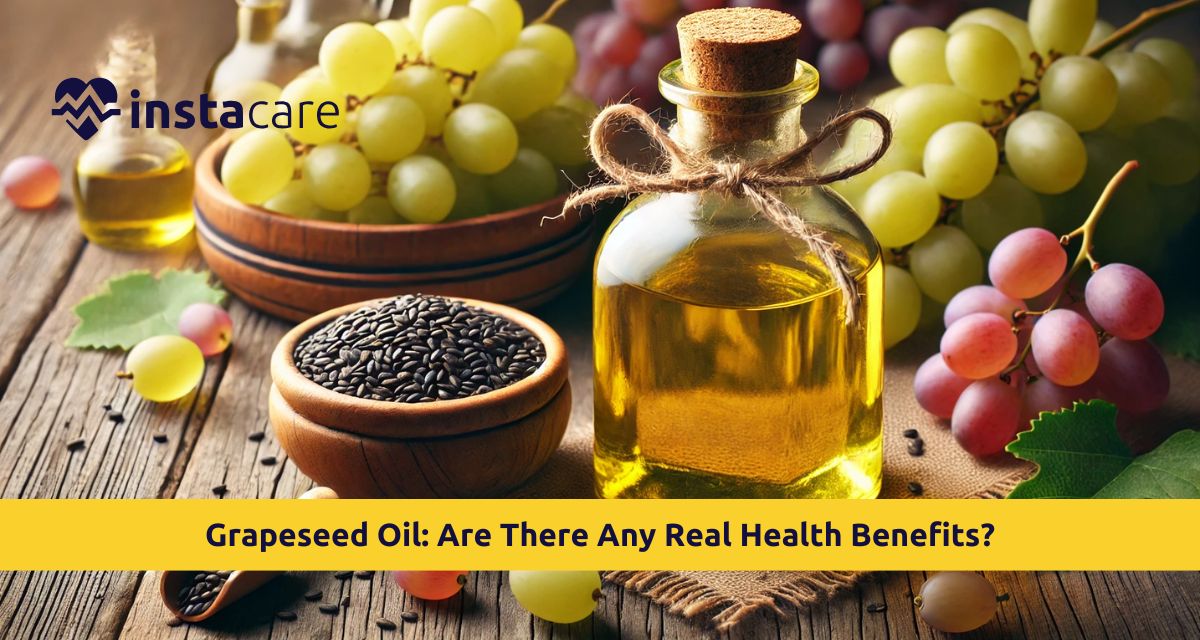Nutritional Composition Of Grapeseed Oil
- High content of polyunsaturated fats, especially omega-6 fatty acids
- Rich in vitamin E, known to possess antioxidant properties.
- Contains moderate vitamin K, which supports bone health.
- Cholesterol-free.
Advantages of Grape Seed Oil
Cooking
Fry it, sauté it, and maybe grill with it because its smoke point of 420°F (216°C) is much higher than that of several other oils, including olive oil. With its neutral flavor, it is destined to fit right into things because it goes well with almost every dish.
Skin Care
Grapeseed oil can be used in an essential oil blend as a carrier oil or just dabbed on the skin; it works well as a moisturizer and anti-inflammatory. Grapeseed oil was found to be light and non-comedogenic so that it wouldn't block pores. The list of claims made by Grapeseed Oil for Skin regarding its status as an oil seems endless.
It has much higher levels of fatty acids and antioxidants, both of which benefit skin care in different ways. Oil ingredients are skin moisteners, agents that increase skin attractiveness by inducing built-in immune responses against age, treatment of acne, or the calming effect on irritated skin.
Hair Care
It is said to be the best for hair to grow healthy. Applying it on your scalp gives dry hair moisture and frizz control and may even stimulate growth if massaged into the scalp. Another thing that adds to the limelight of grapeseed oil these days is the ability of Grapeseed Oil for Hair Growth benefits, linoleic acid is reputed to assist in keeping shining and luscious hairs on the head by improving scalp blood flow so the hair follicles may be stronger in producing such healthy and full hair.
Anti-Aging
Grapeseed oil contains vitamin E and antioxidants, which counteract the free radicals that cause skin cells to damage themselves, wrinkle, and age prematurely.
Acne Treatment
Grapeseed oil is non-comedogenic, so it will never block pores, reducing the chances of acne breakouts. Its anti-inflammatory properties soothe affected skin and can be used even on sensitive types.
View More: 7 Best Avocado Oil Benefits for Skin
Why Grapeseed Oil is a Good Alternative For Olive Oil?
- Smoke Point: Grapeseed oil has a much higher smoke point (420°F) as compared to olive oil (375°F), thus better suited for high-temperature cooking.
- Nutritional Value: High in monounsaturated fat, olive oil will reap the benefits if consumed in moderation. Grapeseed oil is rich in polyunsaturated fats, which also offers benefits albeit the difference in kinds of fatty acids.
- Taste: Olive oil has this characteristic strong flavour, while the advantage of grapeseed oil is its neutral flavour when the recipe is such that you don't want the oil to compete with the finished dish.
Benefits Of Cold-Pressed Grapeseed Oil
- Grapeseed Oil and Antioxidants in higher concentration
- Essential fatty acids retained
- The oil has a great taste for culinary uses
Some Grapeseed Oil Side Effects
Some of the potential side effects include:
- Irritation or rare allergic reactions on the skin
- Digestive discomfort when consumed in large amounts
- Imbalance of omega-6 and omega-3 fatty acids when taken in excess
Conclusion

